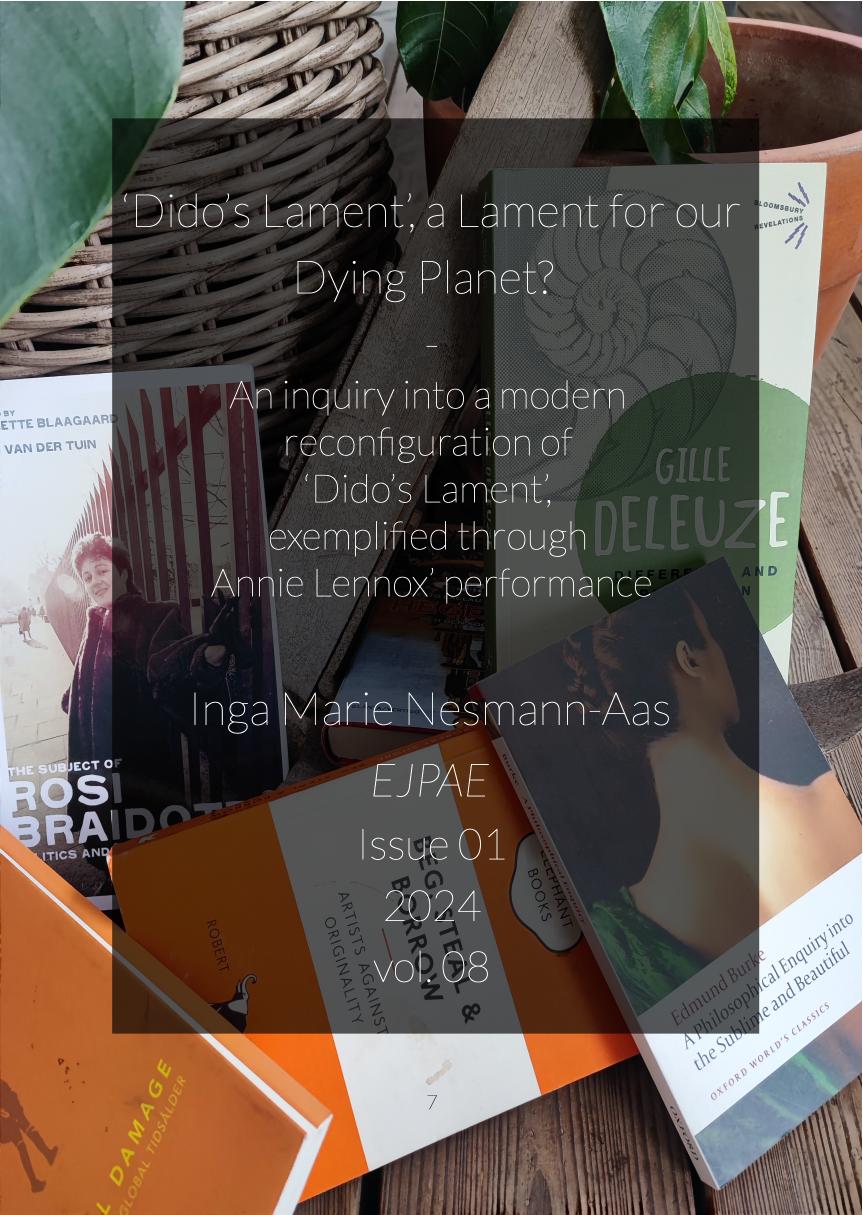‘Dido’s Lament’, a Lament for our Dying Planet?
An inquiry into a modern reconfiguration of ‘Dido’s Lament’, exemplified through Annie Lennox’ performance
DOI:
https://doi.org/10.5281/zenodo.13913104Keywords:
Dido's Lament, performance, embodiment, historically informed performance, interpretation, topomorphologyAbstract
‘Dido’s Lament’ from the opera Dido and Aeneas (Henry Purcell, 1680s) has found its manifold ways through history. Still holding a massive popularity on the world’s opera stages, it is also realized through several performers in various musical styles. Do such performances pose a ‘threat’ to the historical perspectives, or do they offer new ways of experiencing this music?
I look specifically into Annie Lennox’ performance of ‘Dido’s Lament’ with London City Voices. Recorded during the pandemic, it exemplifies an aspect of the crisis in music during the pandemic. Further, Annie Lennox herself relates the lament to our dying planet and thus to the global climate crisis. The objective is twofold, in that I seek to show the value of understanding the culture where the text and music originates, and to open up for re-configuration and appropriation where we seek a meaningful performance and experience in our current context. This is done in light of central issues concerning performance of historic music. This approach is both applicable for performers and in and educational setting for students and teachers in music education.
Founded in an embodied experiential approach, I will, through historic references, textual analysis, and analysis of this realisation by Annie Lennox, address the various ‘crises’ mentioned. From centring around Dido’s tragic fate towards a beyond human tragedy concerning the planet’s survival, we shift from an anthropocentric view towards a wider and embodied approach to this piece of music, opening new for possibilities and experiences for performers and audiences, which is also highly relevant in an educational setting.

Downloads
Published
Issue
Section
License
Copyright (c) 2024 Inga Marie Nesmann-Aas

This work is licensed under a Creative Commons Attribution 4.0 International License.
EJPAE provides immediate open access to all its published content. Users do not need to register or pay to read content.
https://creativecommons.org/licenses/by/4.0/
Authors of content published in European Journal of Philosophy in Arts Education (EJPAE) retain the copyright to their works. Content is free to be used by anyone as long as you "[...] give appropriate credit, provide a link to the license, and indicate if changes were made. You may do so in any reasonable manner, but not in any way that suggests the licensor endorses you or your use." and "No additional restrictions — You may not apply legal terms or technological measures that legally restrict others from doing anything the license permits." (from the Creative Commons licence agreement)
EJPAE does not charge any author or publication fees.
Authors are encouraged to deposit the final published version of their article for self-archiving (author's personal website) and/or archiving in an institutional repository immediately upon publication.




